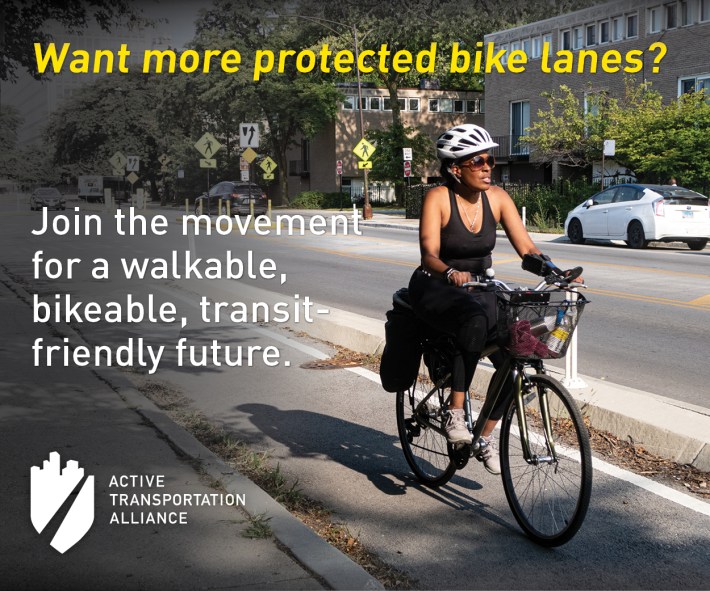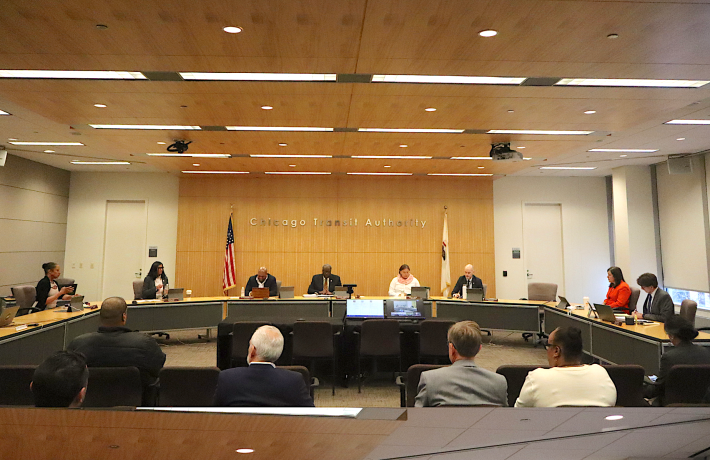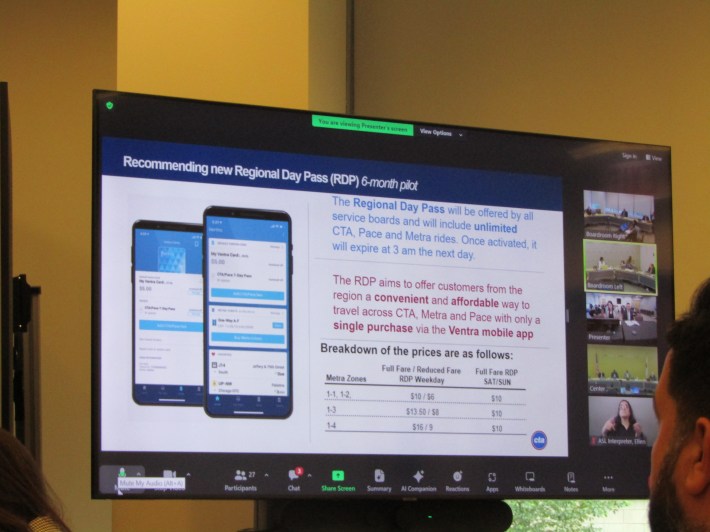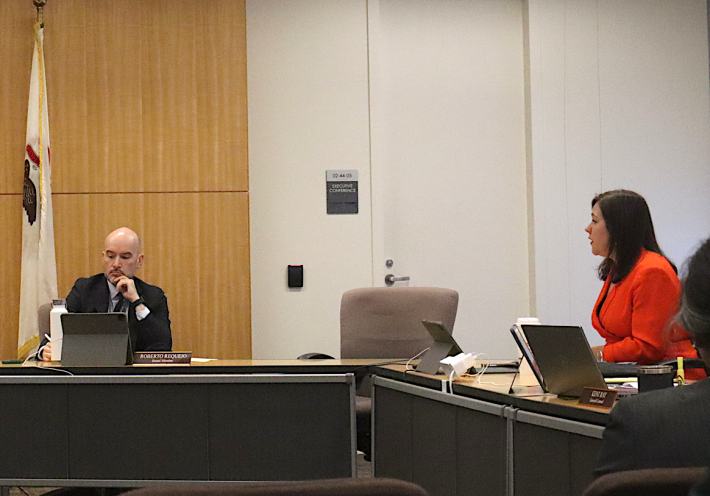
CTA Vice President of Security Kevin Ryan said that the artificial intelligence-assisted security cameras the transit agency started to pilot last August led to six arrests, including for a robbery in progress.
The topic came up at the transit agency's April board meeting, which took place yesterday. During an otherwise routine vote on the technology contracts, board member Roberto Requejo flagged the contract to expand the pilot, saying that he wanted the public to know what exactly they were voting on. This led to a discussion of exactly how effective the pilot has been, and what it does to avoid false positives.

The board also voted on an amendment to the intergovernmental contract between the CTA, Metra and Pace for a one-day pass that would work on all three systems. While the original contract was approved last summer, the pass still hasn’t been implemented yet, and CTA officials didn’t give the board a firm date of when it might be.
Gun detection technology
In late August, the CTA announced that it signed a contract with ZeroEyes to provide software that would use artificial intelligence to scan security footage for brandished firearms. Anything that gets flagged as a potential firearm is forwarded to an operation center staffed by military and law enforcement veterans, who check whether it is a real firearm.

Ryan told the board that anything that they judge to be "a law enforcement weapon or a toy" gets sent to CTA as an "FYI email" as opposed to more urgent notifications that go straight to phones and computers.
Ryan added that, if the contract expansion was approved, it would go to around 1,500 cameras based on historic and current crime data, as well as stations where illegal guns have been seized nearby. He said that, in the interest of security, he didn’t want to get more specific.
CTA Acting Director Nora Leerhsen said she did want the public and her employees to know that "we are innovative, we’re looking at the state-of-the-art technology, not just traditional methods."
Board member Rosa Ortiz said she would want the CTA to get the word out about the cameras being there, and how they improve safety. Leerhsen agreed that "we also need to tell the camera story."
Board member Michael Eaddy said he was worried about false positives, noting that "there have been incidents, maybe a person has had something nonlethal, but law enforcement may engage them aggressively," leading to fatalities.
Ryan responded that he couldn't "say it would never occur... If it looks like a real gun, it would be sent out like a probable firearm," he said, adding that the officers on the scene "are not taking this as gospel. They’re taking [as], this is the information we have. When you’re on the scene, you have to assess what’s in front of you."
At the same time, Ryan noted that "there are a lot of people who are carrying replica firearms who are doing robberies."
In her report later during the meeting, Leerhsen gave a small update on the $3.3 million the board set aside for public safety pilot programs. She said that the CTA is currently talking to stakeholders, and that the board should get a bigger update in May.
Regional Day Pass
A one-day regional pass would be a rarity in the Chicago area, a transit pass that would provide unlimited riders across all three transit systems. The major stumbling block has been that Metra fares are based on the distance traveled, while CTA and Pace fares are trip-based. The one-day regional pass as it was originally discussed last June took Metra fare zones into account on weekdays while setting weekend fares at $10. As CTA officials explained at the time, that’s because it would be an extended version of Metra’s existing all-zone weekend day pass, which costs $7.

During Wednesday’s meeting, CTA Chief Innovations Officer Molly Poppe said that the pass would cost $9.50 on weekends and $10 on weekdays. Unlike Metra-only and CTA/Pace one-day passes, the regional day pass would only be available on the Ventra app.
Poppe told the board that the CTA expects the pass to launch "very soon." She declined to provide anything more specific, saying only that "the board will be the first to know" when she has a launch date. "We've been doing some testing," she said. "It looks pretty good."
Streetsblog asked the CTA press office why adoption of the pass has taken so long, but didn’t receive a response by press time. If we hear back,we'll update this post.

Requejo asked whether there is anything else the CTA has been doing to improve coordination between the three systems. Poppe said that they are working on a "more seamless" Ventra app. While the app can technically be used on all three systems, Metra tickets and passes are completely separate from CTA/Pace fare payments and passes.
Poppe said another thing the agencies have been working on is to better align CTA bus schedules with Metra schedules to make transfers more practical. She noted that Metra lines tend to have longer headways than CTA buses, adding that the goal is to "make sure we're not ten minutes off from when the train coming in," she said.
Leerhsen said the CTA has been working with Metra and Cook County to evaluate potential infill 'L' and Metra stations. "CTA has actually been a leader nationally" on inter-system collaborations, she argued. "We don’t have to be convinced of the value of these efforts."

Did you appreciate this post? Streetsblog Chicago is currently fundraising to help cover our 2025-26 budget. If you appreciate our reporting and advocacy on local sustainable transportation issues, please consider making a tax-deductible donation here. Thank you.




